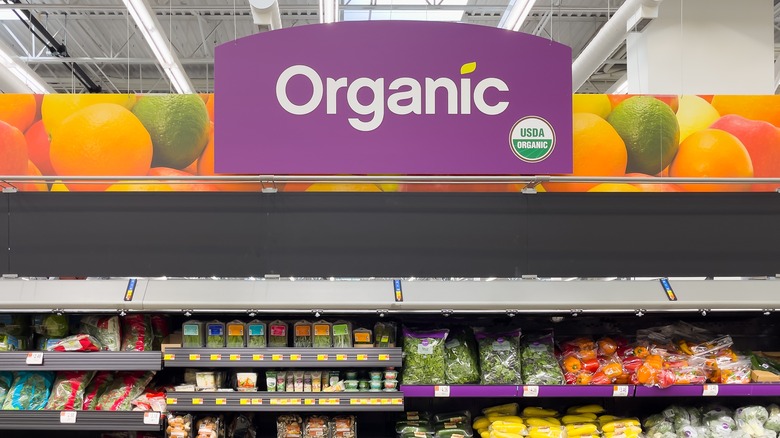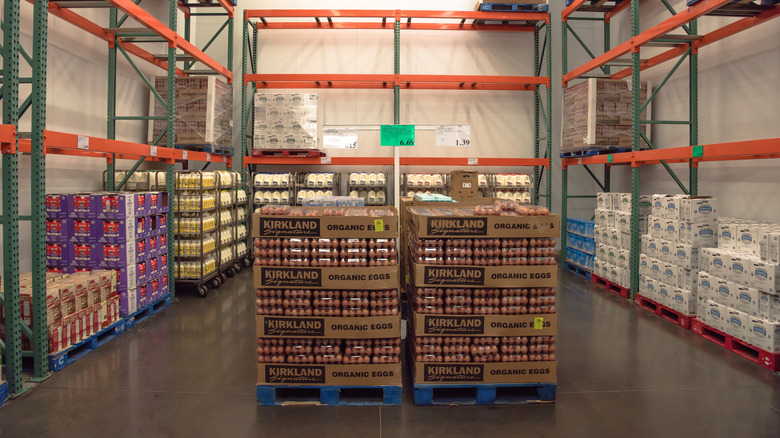The Largest Retailer Of Organic Foods In The US Isn't Whole Foods
When you think of buying organic foods, Whole Foods might be the first name that comes to mind. However, the title of the largest retailer of organic foods in the United States doesn't actually belong to the upscale grocery chain. Surprisingly, it's Costco that holds this distinction. The company has steadily risen to the top by offering a wide variety of organic products at competitive prices, making organic foods accessible to millions of American households. This shift underscores the changing landscape of organic food retail, where affordability and bulk purchasing are key as more and more shoppers seek out certified organic food.
Costco's dominance in organic food sales has continued to grow since it surpassed Whole Foods back in 2015. By 2024, Costco's organic food sales reached over $6 billion, making it the largest organic grocer in the U.S. Despite organic products being a smaller portion of their overall sales, Costco's approach of offering organic options at competitive prices has driven their success in this market. The company's investment in organic farming, including lending money to farmers to boost supply, continues to support this growth. This demand is so strong that it's reported one out of every ten dollars spent on organic food in the U.S. is spent at Costco.
Costco's appealing organic strategy
While Costco's organic offerings are often celebrated for their affordability, the company's approach to organic food goes beyond just pricing. Costco has embraced organic food as part of a broader lifestyle and sustainable farming philosophy that resonates with members. The company has made significant investments in building partnerships with organic growers, working to understand the intricacies of organic farming, and striving for efficiency and consistency in its offerings. By doing so, Costco has managed to deliver quality organic products at prices that are considerably lower than those at Whole Foods. Costco's strategy also includes offering cage-free eggs and other sustainable products that align with their values and the expectations of their customer base.
While Whole Foods remains a popular choice for organic foods, its reputation has been clouded by controversies, such as the criticisms surrounding its Responsibly Grown program. Additionally, with higher prices, some shoppers may be considering alternatives. It's worth noting that Whole Foods has a notably high customer turnover rate, with a significant portion of shoppers not returning after their first visit. These factors, coupled with the increasing appeal of affordable organic options elsewhere, might be contributing to a shift in consumer preferences. With Costco offering similar, if not better, organic products at a fraction of the price, it's no surprise that many shoppers are choosing the warehouse giant over the upscale grocery chain.

